He was my North, my South, my East and West,
My working week and my Sunday rest,
My noon, my midnight, my talk, my song;
I thought that love would last for ever: I was wrong.
The stars are not wanted now: put out every one;
Pack up the moon and dismantle the sun;
Pour away the ocean and sweep up the wood.
For nothing now can ever come to any good.
Monday, May 17, 2010
Tuesday, May 11, 2010
Nothing Not To Love About Me
"Why Don't You Love Me" - Beyoncé from Beyoncé on Vimeo.
For the first time ever I made it through a Mothers day without ruining it for everyone!! Victory. Like one year I got alcohol poisoning and ralphed all over my mom. I was 16 so you can imagine what a big deal that was!
I made her this card:

And then I made her a special brownie. It looks like a two but I swear I drew a one! She's modest so it's whatever.

I feel like writing nothing right now. I've been working on my "book" for a few hours so I've got nothing left!
Here's a note I got passed to me in class the other day from my friend Nick. Made me LOL and LIC (Laugh in class)
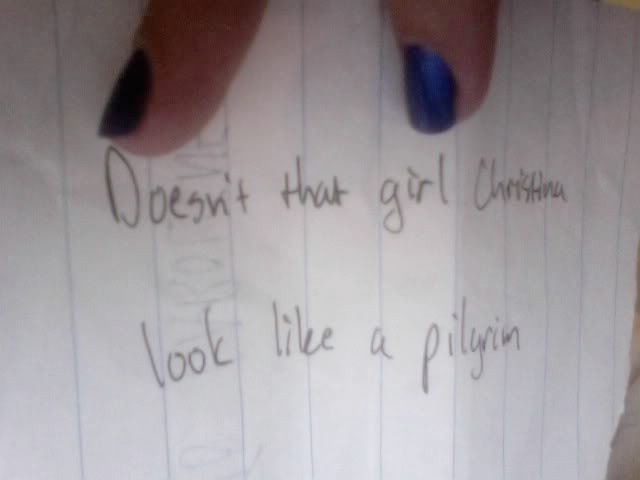
Women's Fall 2010 Vans Sneak peek

Aaron Appstronaut

Kate Lavoie with a frog.

One of Bodega's graduates! aka me!
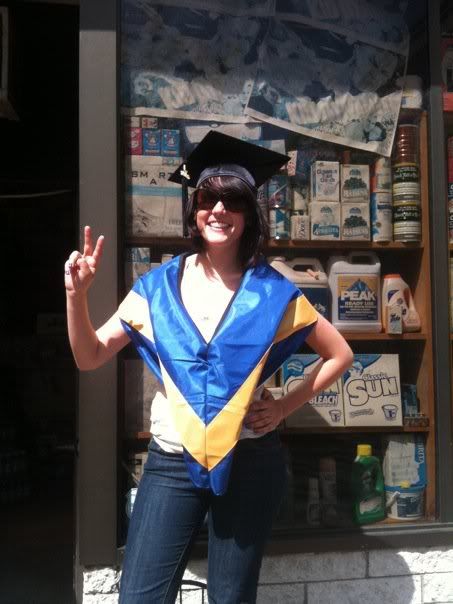
My life, my life, my life.

Wednesday, May 5, 2010
Oh maturity's a wrapped-up package deal or so it seems. And ditching teenage fantasy means ditching all your dreams. All your friends and peers and family solemnly tell you you will have to grow up. Be and adult. Yeah be bored and unfulfilled. But no one's yet explained to me exactly what's so great about slaving 50 years away on something that you hate. About meekly shuffling down the path of mediocrity. Well if that's your road then take it but it's not the road for me.
And if all you ever do with your life is photosynthesize, then you'll deserve every hour of your sleepless nights that you waste wondering when you're going to die.
And if all you ever do with your life is photosynthesize, then you'll deserve every hour of your sleepless nights that you waste wondering when you're going to die.
Monday, May 3, 2010
Growing Up Isn't Moving On
WATCH THIS. One of the best music videos made in a while. Psyched that it's from a band I love. Polar Bear club is great. Saw them twice on two of the FyS/TUI tour shows. Seeing them at skatefest friday.
I love to look back and cringe on past perceptions. Maturing is a comical experience almost as funny as never maturing at all.
I am so much better than I used to be.
Running the Philly Marathon in November. Feel free to join/train with me.
Picked up my cap and gown today. Both strange and exciting.
Hey world check me out!
I love to look back and cringe on past perceptions. Maturing is a comical experience almost as funny as never maturing at all.
I am so much better than I used to be.
Running the Philly Marathon in November. Feel free to join/train with me.
Picked up my cap and gown today. Both strange and exciting.
Hey world check me out!
Tuesday, April 6, 2010
A Work In Progress
Take a minute and think back to high school. Walk through the lobby, down the hall, past your locker and turn into your old US History classroom. Weed out the window shade maps, the posters, overhead projector, and blackboard. Don’t think about what you learned in the class, but how you learned in class. Do you remember the textbook that you used? Do you remember using anything else to get your information? History textbooks have been an important issue in the news this past week due to a recent vote by The Texas Department of Education. The vote was made as one of many to further the to change state curriculum guidelines. The final vote will be held in May. Texas is one of the biggest textbook buyers in the country and counts as one of the nation’s 21 adoption states. This means that school districts can only use state money to buy textbooks that are state approved. Adoption states hinder the textbook writing process and motivate publishers to cater to the standards of adoption states.
A common complaint among teachers in schools all over the country is that their history books are more so biased than informative. When a history teacher plans his or her curriculum they have two options; teach completely from the book or teach using the book as one of many sources. Teaching using a textbook as the only source is an acceptable form of teaching in today’s education system. This might have been the way that you learned history as a student. The problem with only having a textbook as an informant is that the student only hears what they read. Textbooks are written for students to get the facts, but not all of them. Writers scribe together a narrative of the nation’s past, but not all of it. Teachers have a limited amount of time to cover information and textbook writers cater to this lack of time by cutting out historic happenings. It is important to look at what is being cut out. A teacher from Oklahoma called into National Public Radio last week in an effort to put in her 2 cents on history textbooks. She complained of the history book used by her school lacking information on Native American culture and history. She claimed that there was“ No mention of who lived here before, no mention who was kicked off.” If students are growing up learning from one source than they are growing up with a learning mindset that forgets to question or at least think critically.
Tim Tyson, author of the memoir “Blood Done Sign My Name” writes about the misconceptions in history that report the struggle of African Americans and their quest for civil rights. Tyson states in his book that
“The problem is not that we cherish the story, exactly, nor is the story itself entirely false... many of the things we admire about Dr. King are factual. The problem is why we cherish that kind of story: because we want to transcend our history without actually confronting it...The self congratulatory popular account insists that Dr. King called on the nation to fully accept its own creed, and the walls came a-tumbling down. This conventional narrative is soothing, moving, and politically acceptable, and has only the disadvantage of bearing no resemblance to what actually happened,”
This is the problem teachers face when they simply rely on their textbook; lack of confrontation in regards for the material. Students look at the text with a sense of trust. The past has been written neatly for them in paragraph form with organized headers. They read the bold print words and take those as glossary terms they should know. The problem is that even the definition of those bold print terms can be biased or vague. For example the textbook definition of “The Middle Passage” is usually described as the simple route used for slave trade across the Atlantic. Students don’t get an understanding of the brutality that accompanied this “journey” for African slaves. Teachers find it safe and easy to fall back on teaching a curriculum that fits a timeframe, but it is more important for students to at least learn that the book used is one of many sources. Teachers could help students get a better understand of the Middle Passage through providing secondary sources such as diary excerpts from slaves where details transcend a boat crossing the Atlantic.
Professor Jonathan Zimmerman, from the History and Education Department at New York University was interviewed on NPR’s program on textbooks last week. Zimmerman hits the issue of history textbooks spot on when bringing up the underlying problem in History classrooms.
“...I think that one of the things that really frustrates me as a historian is that our kids aren't exposed to what historians actually do. We are not perfect encapsulators of the past because we didn't live in the past. What we do, through the best of our ability, is to try to reconstruct the past, but we do that imperfectly. And most of all, we disagree with each other in the process of doing it. That's what I find so exciting about history - is that it's a series of question marks.”
Most teachers would likely agree with Zimmerman, but most would also complain that there is simply too much of a risk in implementing this idea in the classroom. There are standards and deadlines to be met. Teachers can’t afford to take the time to sit students down and have them analyze and question everything in the text; the school year is simply too short. Learning the facts and controversies of the nation’s past should be the key responsibility for teachers to cover in the classroom. This will not be possible until textbooks are created in a way where students learn to critically think within the text. Until then teachers will find themselves morally challenged between teaching simply through one point of view or the challenge of many.
A common complaint among teachers in schools all over the country is that their history books are more so biased than informative. When a history teacher plans his or her curriculum they have two options; teach completely from the book or teach using the book as one of many sources. Teaching using a textbook as the only source is an acceptable form of teaching in today’s education system. This might have been the way that you learned history as a student. The problem with only having a textbook as an informant is that the student only hears what they read. Textbooks are written for students to get the facts, but not all of them. Writers scribe together a narrative of the nation’s past, but not all of it. Teachers have a limited amount of time to cover information and textbook writers cater to this lack of time by cutting out historic happenings. It is important to look at what is being cut out. A teacher from Oklahoma called into National Public Radio last week in an effort to put in her 2 cents on history textbooks. She complained of the history book used by her school lacking information on Native American culture and history. She claimed that there was“ No mention of who lived here before, no mention who was kicked off.” If students are growing up learning from one source than they are growing up with a learning mindset that forgets to question or at least think critically.
Tim Tyson, author of the memoir “Blood Done Sign My Name” writes about the misconceptions in history that report the struggle of African Americans and their quest for civil rights. Tyson states in his book that
“The problem is not that we cherish the story, exactly, nor is the story itself entirely false... many of the things we admire about Dr. King are factual. The problem is why we cherish that kind of story: because we want to transcend our history without actually confronting it...The self congratulatory popular account insists that Dr. King called on the nation to fully accept its own creed, and the walls came a-tumbling down. This conventional narrative is soothing, moving, and politically acceptable, and has only the disadvantage of bearing no resemblance to what actually happened,”
This is the problem teachers face when they simply rely on their textbook; lack of confrontation in regards for the material. Students look at the text with a sense of trust. The past has been written neatly for them in paragraph form with organized headers. They read the bold print words and take those as glossary terms they should know. The problem is that even the definition of those bold print terms can be biased or vague. For example the textbook definition of “The Middle Passage” is usually described as the simple route used for slave trade across the Atlantic. Students don’t get an understanding of the brutality that accompanied this “journey” for African slaves. Teachers find it safe and easy to fall back on teaching a curriculum that fits a timeframe, but it is more important for students to at least learn that the book used is one of many sources. Teachers could help students get a better understand of the Middle Passage through providing secondary sources such as diary excerpts from slaves where details transcend a boat crossing the Atlantic.
Professor Jonathan Zimmerman, from the History and Education Department at New York University was interviewed on NPR’s program on textbooks last week. Zimmerman hits the issue of history textbooks spot on when bringing up the underlying problem in History classrooms.
“...I think that one of the things that really frustrates me as a historian is that our kids aren't exposed to what historians actually do. We are not perfect encapsulators of the past because we didn't live in the past. What we do, through the best of our ability, is to try to reconstruct the past, but we do that imperfectly. And most of all, we disagree with each other in the process of doing it. That's what I find so exciting about history - is that it's a series of question marks.”
Most teachers would likely agree with Zimmerman, but most would also complain that there is simply too much of a risk in implementing this idea in the classroom. There are standards and deadlines to be met. Teachers can’t afford to take the time to sit students down and have them analyze and question everything in the text; the school year is simply too short. Learning the facts and controversies of the nation’s past should be the key responsibility for teachers to cover in the classroom. This will not be possible until textbooks are created in a way where students learn to critically think within the text. Until then teachers will find themselves morally challenged between teaching simply through one point of view or the challenge of many.
Sunday, March 7, 2010
Get Up And Get Down And Get Outside
Lately:

Nice weather has me more energetic than I've been in months. I forgot how good it felt to walk around the city without shivering. Today was pretty fun, Caitlin and I checked out the sale @ LF. Lot's of good stuff, lot's of good shoes that were too big for me. :( We hit up Urban Outfitters which is still (I was just checking!) a continuous let downnnnnnn. As a Freshmen I used to be so psyched on that store but now I see what it really is; a complete rip off. The prices are almost insulting to customers. I can't wait for the 5 floor Forever 21 to hit Newbury and watch UO's sales plummet. Angelique picked us up after and we hit the giant Goodwill in Roxbury. I bought 2 denim pieces for a steep total of 6 dollars. Everything I enjoy lately and I guess for the past few years is usually made from denim. whatever!
Oh My God, Shoes! Psyched to have a pair of these guys in my size...get yours this Saturday! 100 pairs made. We buckin' or not?
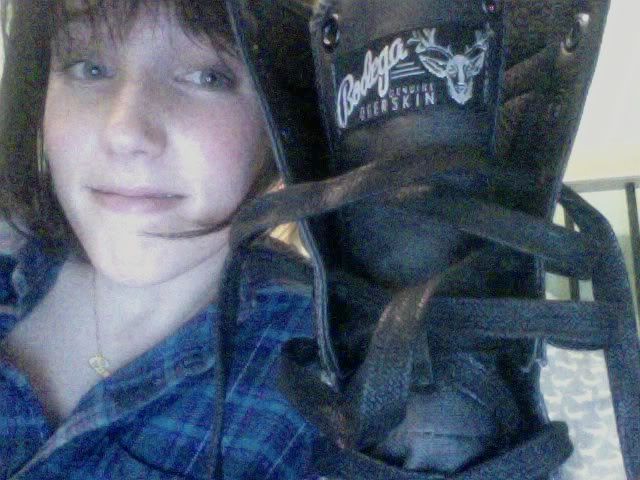


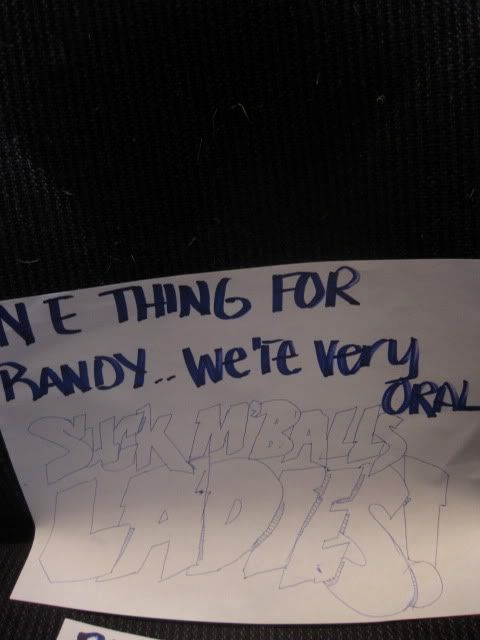
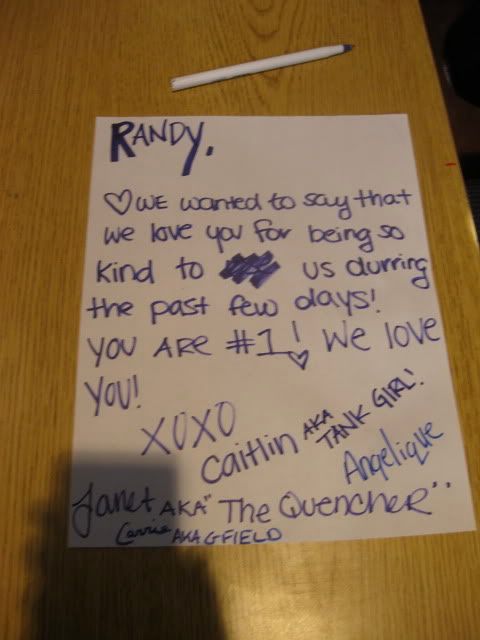


Nice weather has me more energetic than I've been in months. I forgot how good it felt to walk around the city without shivering. Today was pretty fun, Caitlin and I checked out the sale @ LF. Lot's of good stuff, lot's of good shoes that were too big for me. :( We hit up Urban Outfitters which is still (I was just checking!) a continuous let downnnnnnn. As a Freshmen I used to be so psyched on that store but now I see what it really is; a complete rip off. The prices are almost insulting to customers. I can't wait for the 5 floor Forever 21 to hit Newbury and watch UO's sales plummet. Angelique picked us up after and we hit the giant Goodwill in Roxbury. I bought 2 denim pieces for a steep total of 6 dollars. Everything I enjoy lately and I guess for the past few years is usually made from denim. whatever!
Oh My God, Shoes! Psyched to have a pair of these guys in my size...get yours this Saturday! 100 pairs made. We buckin' or not?






Saturday, March 6, 2010
Busy busy Boston
Busy busy place. Even when the ice and snow are blowing in your face!
So busy but I just found out I had mono- that is a fun fact!
So I guess I quit coffee and tried to improve my eating habits for no reason....just kidding but still.
I like where I am.
Got my hair cut the other day.

And hello midterms. Spring Break in 5 days.
Who the fuck is Sam Adams? Am I late for this party? Guess so.
More L8R
So busy but I just found out I had mono- that is a fun fact!
So I guess I quit coffee and tried to improve my eating habits for no reason....just kidding but still.
I like where I am.
Got my hair cut the other day.

And hello midterms. Spring Break in 5 days.
Who the fuck is Sam Adams? Am I late for this party? Guess so.
More L8R
Subscribe to:
Posts (Atom)
